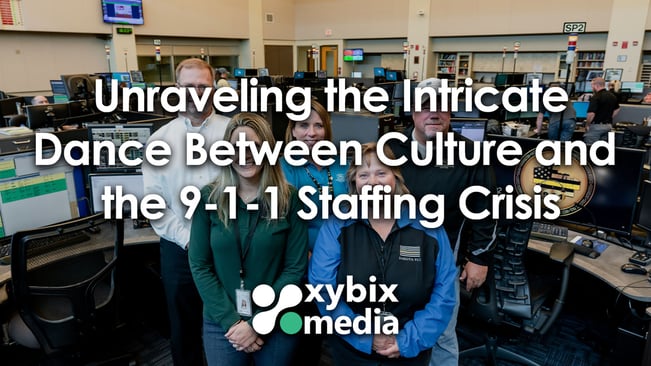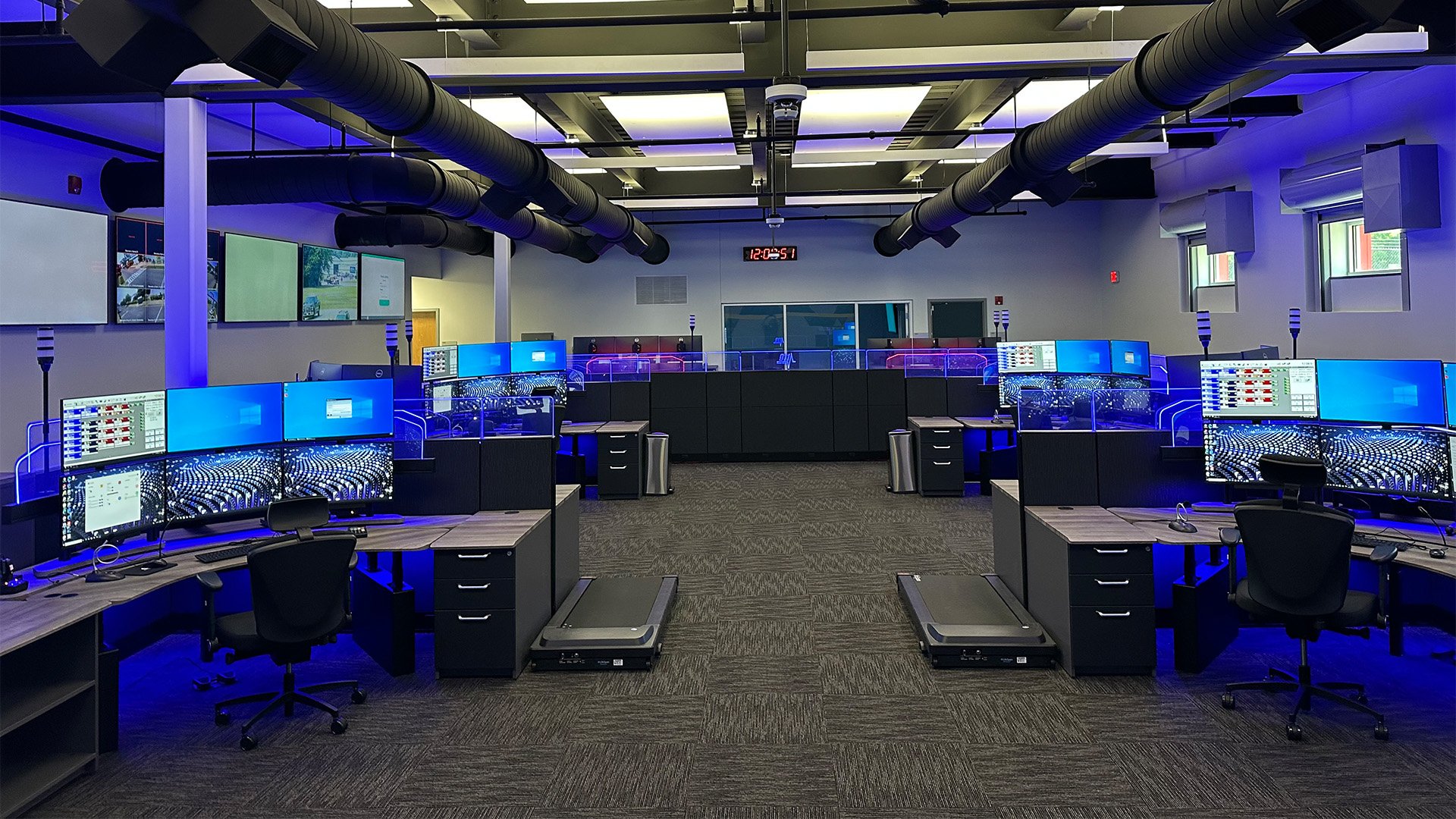
(NOTE: This article was originally written for 911training.net)
We all understand that 9-1-1 dispatch centers serve as the vital bridge connecting individuals in distress with the timely aid of first responders. However, the often-overlooked factor of the culture within these centers can profoundly influence the morale and job satisfaction of staff, ultimately impacting the ability to provide effective emergency services.
The Dance of Culture and Staffing Crisis
Culture and the staffing crisis in 9-1-1 dispatch centers engage in an intricate dance, creating a perpetual cycle that magnifies these challenges. When staffing levels fall short, dispatchers bear the weight of the burden, resulting in a deteriorating culture. Mandatory overtime, covering shifts, and no time for training are a few of the issues that lead to a toxic culture. The detrimental consequences of this toxic culture, in turn, contribute to difficulties in recruiting and retaining qualified dispatchers.
Consider the story of Emily, a seasoned dispatcher who worked tirelessly for years in an understaffed center. The high stress levels, lack of support, and overwhelming workload took a toll on her well-being. Despite her dedication to the job, she reached a breaking point and decided to quit, leaving a gap that was difficult to fill. Emily's experience is not unique. Many dispatchers, like her, face burnout and make the difficult decision to seek other career paths due to the negative culture perpetuated by the staffing crisis.
Unveiling the Causes of Poor Culture and Staffing Crisis
In addition to low staffing, multiple factors contribute to the poor culture and staffing crisis experienced by 9-1-1 dispatch centers. Primarily, the inherently stressful nature of the job, characterized by constant pressure and exposure to traumatic situations. Insufficient resources and training further compound the problem, leaving dispatchers ill-prepared to handle the demands of their workload.
Take the example of Jason, a newly hired dispatcher who underwent rushed training before being thrust into the fast-paced world of emergency response. Without adequate preparation, he found himself overwhelmed and struggled to effectively handle high-stress situations. The lack of training not only jeopardized the well-being of those in need but perpetuated a negative culture within the center. Some people may be able to pick up the job right away and others, like Jason, may need a little more time.
The lack of recognition and opportunities for advancement within dispatch centers demotivates and disengages dispatchers. Without a clear path for growth and acknowledgement of their contributions, dispatchers may pursue alternative career paths, perpetuating the staffing crisis and impeding the establishment of a positive culture.

In contrast, consider the case of Sarah, a dispatcher who works in a center that prioritizes professional development. She receives regular feedback and is provided with opportunities to attend conferences and training sessions. Sarah feels valued and motivated to excel in her role, contributing to a positive culture that attracts and retains talented dispatchers. Sarah in turn is more willing to help less experienced dispatchers when they really need the help.
Charting a Course for Culture Improvement to Tackle the Staffing Crisis To break free from the cycle of a poor culture and the staffing crisis, it is imperative for 9-1-1 dispatch centers to prioritize the well-being of their employees. Various strategies can be employed to create a supportive and inclusive work environment that nurtures both personal and professional growth.
1. Promoting Mental Health and Well-being:
- Provide access to counseling services and mental health resources to address the emotional toll of the job. These resources can be found through your city/county HR or with your police and fire departments. If your county has no access to such resources, you should advocate for them.
- Encourage self-care practices such as deep breathing and stretching at dispatcher’s consoles and foster a work-life balance (a hobby that can be done at the console such as crochet) that allows dispatchers to recharge and stay resilient in the face of challenges.
- Reminders that self-care is an ongoing practice. Encourage dispatchers to find what works for them and help them incorporate these exercises into their routine consistently to promote overall well-being.
- If your center has space for a quiet room, get it implemented. A simple room with a couch with the ability to shut off the lights or meditate can be a lovely place to recover. Also consider a dedicated place for exercise, like a treadmill that is not at a dispatcher’s console to give dispatchers the ability to walk it off.
A 9-1-1 dispatch center in Texas implemented a program that provides dispatchers with access to free counseling services through the fire department. This program has been credited with reducing stress levels and burnout among dispatchers. It has also helped improve morale. Take advantage of these services and don’t discount them as programs for the dispatchers who need help handling the emotional toll.
2. Investing in Comprehensive Training Programs:
- Offer ongoing education, simulation exercises, and access to new technologies to equip dispatchers with the necessary skills and knowledge to handle emergencies.
- Find an experienced dispatcher who can dedicate a few hours of training or create a committee of passionate dispatchers.
- Provide specialized training in stress management, emotional resilience, and effective communication.
A 9-1-1 dispatch center in Washington offers dispatchers ongoing training in various areas, including stress management, emotional resilience, and effective communication. This training has helped dispatchers to feel more confident in their abilities and to better handle the challenges of the job.

- Promote collaboration initiatives and team-building activities that foster a supportive environment. Go beyond just decorating for holidays. Incorporate theme days, potlucks, bring in food trucks, or have some friendly competitions.
- Establish open communication channels to encourage dispatchers to rely on one another for assistance and reduce the sense of isolation that can often be felt in the role.
- Give kudos when dispatchers help each other. You never want acts of kindness and help to go unnoticed. A verbal “Thank You” can go a long way.
A 9-1-1 dispatch center in the Chicagoland area has several team-building activities, such as monthly potlucks and games like dispatch BINGO. These activities have helped to foster a sense of camaraderie and teamwork among dispatchers. Look for activities that get your team laughing, as that is one of the crucial components of a great team.
Another PSAP hired a local photographer from the community college and got professional headshots of her team standing at their desks. Some wanted the bad ass dispatcher look, while others had a smile on their face. They all took pride in their photos when they went up on the center's Facebook page. Now the center and the dispatchers have professional photos they can use for years to come.
4. Recognizing and Rewarding Achievements:
- Publicly acknowledge dispatchers' contributions through appreciation events, awards, and recognition programs. Social media is a great avenue for this.
- Create opportunities for professional growth, such as promotions, raises, certifications, and specialized roles to motivate and retain talented dispatchers.
A new manager in Colorado took over the 9-1-1 center and immediately brought in both the Phoenix award for saving a life and the Stork award for delivering a baby. All the recognitions are posted in the hallway walking into the center. This provides a reminder that this work is valuable and provides a sense of pride to the center and the dispatchers.
These strategies, when implemented with dedication and sincerity, can create a positive culture that attracts and retains skilled dispatchers, effectively tackling the staffing crisis while improving the overall emergency response.
The Ripple Effect of a Positive Culture
Establishing a positive culture within 9-1-1 dispatch centers extends far beyond resolving the staffing crisis. It generates a ripple effect that resonates throughout the emergency response landscape, touching the lives of both dispatchers and the communities they serve.
A large PSAP in Georgia was struggling with turnover and was at the edge of a toxic culture. The new director started posting pictures of her team on social media. Nothing special, but a picture of the dispatchers with a shoutout of recognition of a job well done. When they first started this, no one wanted to be on camera but as they continued to celebrate dispatchers, attitudes changed, and this was the start of ending the toxic culture spiral.
Consider the case of John, a distressed caller who found solace in the compassionate voice of a dispatcher named Lisa. Lisa's supportive and empathetic approach not only calmed John in his moment of need but also instilled in him a sense of trust and confidence in the emergency services. This positive interaction was a direct result of the supportive culture fostered within the dispatch center, highlighting the profound impact of culture on public perception and community trust.
The Path to Transformation: A New Era for Dispatch Centers
The interplay between culture and the 9-1-1 staffing crisis uncovers the complexity of their relationship. To forge a brighter future, dispatch centers must address the root causes of the staffing crisis and prioritize efforts to improve culture. By investing in employee well-being, providing comprehensive training, fostering a supportive environment, and recognizing achievements, dispatch centers can break free from the perpetual cycle. In doing so, they ensure effective emergency response, enhance the overall experience for both dispatchers and the community they wholeheartedly serve, and pave the way for a new era in dispatch center operations.


